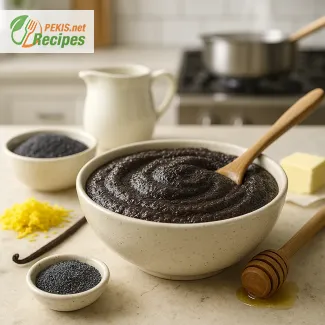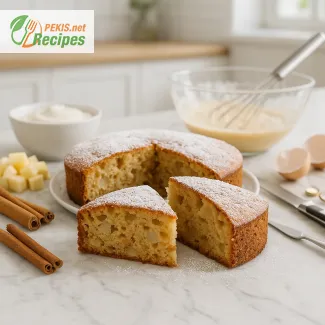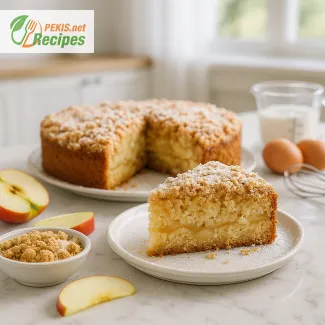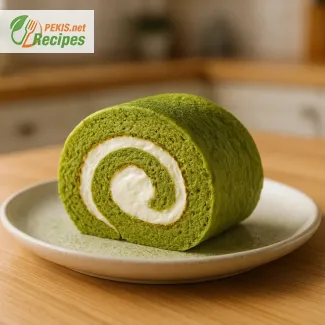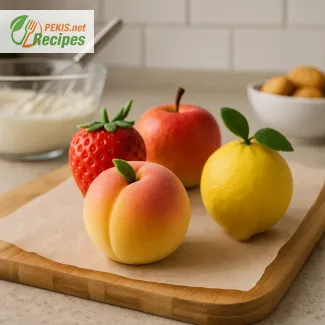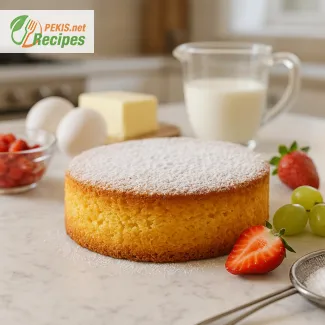
A light and fluffy yogurt cake you’ll want to bake every week
Discover the ultimate moist cake made with yogurt for unbeatable softness and taste
There’s something undeniably comforting about a soft, airy cake that melts in your mouth with every bite. When it comes to achieving that perfect texture, few ingredients work magic quite like plain yogurt. This yogurt cake recipe isn’t just easy—it’s the kind of dessert you can prepare in under an hour and still impress every guest at the table. Whether you're hosting a weekend brunch, preparing a last-minute dessert, or simply craving something sweet and satisfying, a yogurt cake is the ideal solution.
What makes this cake so special is its incredible moisture and subtle tanginess, thanks to the natural creaminess of yogurt. It gives the crumb a tender structure and helps balance out the sweetness, making it a favorite for both kids and adults alike. Unlike heavier butter-based cakes, this one feels light yet indulgent, perfect with a dusting of powdered sugar, a drizzle of glaze, or a handful of seasonal berries on top.
The charm of simplicity in homemade cakes
In a world full of layered, frosted, and extravagantly decorated cakes, sometimes it's the simple recipes that stand out the most. Yogurt cake belongs to that charming category of everyday cakes—the kind of treat you bake not for a celebration, but for the joy of baking itself. It's the cake you enjoy with your morning coffee, as an afternoon snack, or served warm with a scoop of ice cream after dinner.
This type of cake has its roots in European home kitchens, where using yogurt in desserts is a tradition passed down through generations. From the French "gâteau au yaourt" to the Mediterranean versions that incorporate olive oil or citrus zest, yogurt cakes have become a beloved staple across cultures. Their versatility is part of their charm—you can easily adapt the recipe with different flours, natural sweeteners, or mix-ins like chocolate chips, nuts, or fruit.
Why yogurt makes all the difference
Yogurt acts as a natural leavening booster when combined with baking powder or baking soda. It brings moisture without adding excess fat, resulting in a soft crumb that doesn't dry out even after a few days. The slightly acidic profile of yogurt also tenderizes the gluten in the flour, creating a delicate bite that feels luxurious, even with the simplest ingredients.
Additionally, yogurt cakes are less fussy than many traditional recipes. There's no need to cream butter or separate eggs—just mix, pour, and bake. This straightforward process makes it an ideal recipe for beginner bakers or anyone who wants to whip up something delicious without making a mess in the kitchen.
A crowd-pleaser that fits any occasion
Whether you're planning a picnic, a holiday table, or a cozy Sunday with family, a homemade yogurt cake fits beautifully into any setting. You can dress it up with lemon zest and a glaze for springtime brunches or warm spices and caramel for autumn gatherings. Even as-is, its natural richness is satisfying enough to stand on its own.
Children love its soft texture and gentle flavor, while adults appreciate the subtle complexity yogurt brings. It also pairs perfectly with tea, coffee, or even a glass of dessert wine, making it a versatile choice that moves effortlessly from casual to elegant.
Variations to make it your own
Once you've mastered the basic recipe, the possibilities for customization are nearly endless. Add vanilla or almond extract for a fragrant twist, fold in berries for a fresh burst of flavor, or swirl in jam for a touch of sweetness. You can even go savory by omitting the sugar and incorporating herbs or cheese, turning it into a unique side dish.
If you’re trying to keep things healthier, opt for Greek yogurt, whole-wheat flour, or natural sweeteners like honey or maple syrup. The beauty of this cake is how well it responds to tweaks, without losing its beloved texture and charm.
A delicious memory in every slice
One of the most beautiful things about baking a yogurt cake is how quickly it becomes part of your routine. It’s the kind of recipe that invites repetition—because once you’ve tasted how delicious it is, you'll find yourself reaching for it again and again. The ease of preparation combined with the rich, soft result makes it a treasured go-to in any baker’s repertoire.
In a single bowl and with just a few pantry staples, you can create a cake that feels as special as any bakery treat. Serve it to guests, pack it for a school snack, or enjoy it quietly with a book in hand—this yogurt cake brings joy to every bite.
- Preheat your oven to 180°C (350°F). Grease a round cake pan (20–23 cm / 8–9 inch) and line the bottom with parchment paper.
- In a large mixing bowl, whisk the eggs and sugar together until the mixture becomes pale and slightly foamy.
- Add the yogurt, sunflower oil, vanilla extract, and lemon zest. Mix well until fully combined.
- In a separate bowl, sift together the flour, baking powder, and salt.
- Gradually fold the dry ingredients into the wet mixture, stirring gently until a smooth batter forms. Do not overmix.
- Pour the batter into the prepared pan and smooth the top with a spatula.
- Bake in the preheated oven for 35 minutes or until a toothpick inserted into the center comes out clean.
- Remove the cake from the oven and let it cool in the pan for 10 minutes, then transfer to a wire rack to cool completely.
- Optional: Dust with powdered sugar or glaze once cooled before serving.
Creative ways to refine your yogurt cake recipe
Transform a classic dessert into your own signature creation
Baking at home gives you the freedom to adjust recipes based on your taste, dietary needs, and creativity. The yogurt cake, with its soft crumb and delicate flavor, serves as a perfect base for experimentation. While the traditional version is already delicious, there are many subtle changes you can make to take it to the next level. From ingredient swaps to baking techniques, these refinements not only improve texture and flavor but also create a more personalized experience in your kitchen.
Flavor enhancements that elevate the experience
One of the simplest ways to enhance a yogurt cake is by introducing natural flavor infusions. A touch of citrus zest—be it lemon, orange, or lime—can dramatically brighten the flavor profile, adding freshness that complements the creaminess of yogurt. You can also incorporate vanilla bean paste instead of extract for a deeper, more aromatic dimension.
If you're looking for a richer flavor, replacing a portion of the oil with melted butter introduces a buttery undertone while still maintaining the cake’s moisture. Another excellent option is to mix in a spoonful of honey or maple syrup, which not only adds depth but also offers a more complex sweetness.
For a more indulgent twist, fold in ingredients like dark chocolate chips, chopped nuts, or dried fruits. These elements add texture and bursts of complementary flavors, making each bite more exciting.
Healthier twists without sacrificing taste
If your goal is to make the yogurt cake healthier, there are several substitutions that preserve the cake's tenderness while reducing calories or increasing nutritional value. For instance, swapping all-purpose flour with a mix of whole wheat flour and almond flour boosts fiber and adds a subtle nuttiness.
You can also use Greek yogurt instead of regular yogurt. It offers higher protein content and a thicker texture, which gives the cake a denser, creamier structure. To reduce refined sugar, replace some or all of the granulated sugar with coconut sugar or mashed banana for natural sweetness and added nutrients.
Replacing sunflower oil with extra virgin olive oil gives the cake a more Mediterranean flair and a slight herbal note, while also introducing heart-healthy fats. Just be cautious with the amount, as olive oil can be overpowering if overused.
Why homemade always wins
There’s no comparison between a store-bought cake and one that’s freshly baked in your kitchen. When you make a yogurt cake from scratch, you're in control of every ingredient. This not only ensures better quality and freshness, but it also allows you to avoid preservatives and artificial flavors often found in pre-packaged cakes.
Moreover, the act of baking adds a personal connection to the food. Sharing a cake you made yourself creates a sense of pride and warmth that simply can’t be matched by something off the shelf. The aroma that fills your home during baking is an added bonus—it builds anticipation and makes the experience more joyful for everyone.
Common mistakes and how to avoid them
Even with simple recipes, small missteps can affect the final result. One of the most frequent mistakes is overmixing the batter. This can develop too much gluten in the flour, resulting in a dense or rubbery cake. Always mix until the ingredients are just combined.
Another issue is not measuring ingredients accurately, especially flour. Too much flour makes the cake dry. For best results, spoon the flour into your measuring cup and level it off rather than scooping directly from the bag.
Temperature also plays a key role. Ingredients like yogurt and eggs should be at room temperature to ensure a smooth batter and even baking. Baking at the correct temperature is essential too—don’t rush by turning the heat higher, as this may cause the outside to cook faster than the inside.
Creative toppings and finishing touches
Once your cake is baked, you can make it even more delightful with simple garnishes. A citrus glaze made with lemon juice and powdered sugar adds a tangy finish. If you prefer something more subtle, dusting with powdered sugar or a light cinnamon-sugar mix gives it a charming look and taste.
For a fruit-forward version, top the cooled cake with fresh berries or stewed fruits before serving. This not only adds color and flavor but also complements the cake’s natural tanginess from the yogurt. Whipped cream or a dollop of Greek yogurt with honey can also be served on the side for a restaurant-style presentation.
Making it your own
One of the most rewarding parts of baking is that each time you make the same recipe, you can try something new. A yogurt cake provides the perfect base for such creativity. You might decide to swirl in a fruit puree, layer the batter with cinnamon sugar, or even bake it in different shapes—from mini loaves to muffins.
By experimenting with ingredients and techniques, you’ll eventually develop your own version of the yogurt cake that reflects your personal taste and style. Whether you prefer it light and fruity, rich and spiced, or with a healthy twist, the possibilities are endless—and the journey is as enjoyable as the result.
Small changes, big results
Sometimes, the smallest tweaks make the biggest difference. Switching flours, adjusting sweetness, or playing with spices can completely transform a simple yogurt cake into something extraordinary. Over time, these small adjustments accumulate, turning an everyday recipe into a family favorite that everyone asks for again and again.
Approaching this classic cake with curiosity and a willingness to explore is the best way to unlock its full potential. And the more you bake it, the more confident you’ll become in experimenting and making it your own. With each version, you’re not just making dessert—you’re creating an experience, a memory, and a slice of joy.
Contains allergens:
- Eggs
- Gluten (from wheat flour)
- Dairy (from yogurt)
Substitution tips to avoid allergens and gluten:
- Egg-free version: Replace each egg with 60 ml (¼ cup) unsweetened applesauce or 1 tbsp ground flaxseed mixed with 3 tbsp water.
- Gluten-free version: Use a certified gluten-free all-purpose flour blend with xanthan gum.
- Dairy-free version: Replace yogurt with a plant-based alternative such as coconut yogurt or almond yogurt.
- Vitamin B2 (riboflavin): 0.3 mg – supports energy production and skin health
- Vitamin D: 0.6 µg – contributes to bone health and immune function
- Calcium: 90 mg – essential for strong bones and teeth
- Iron: 1.4 mg – helps transport oxygen in the blood
- Magnesium: 20 mg – important for nerve and muscle function
- Phosphorus: 100 mg – supports healthy bones and energy metabolism
- Potassium: 160 mg – aids in fluid balance and heart function
- Zinc: 0.6 mg – promotes wound healing and supports immunity
- Selenium: 5 µg – protects cells from oxidative stress
- Vitamin E: 1.2 mg – helps prevent free radical damage
- Beta-carotene (from lemon zest): 100 µg – converts to Vitamin A, essential for vision and immune health
